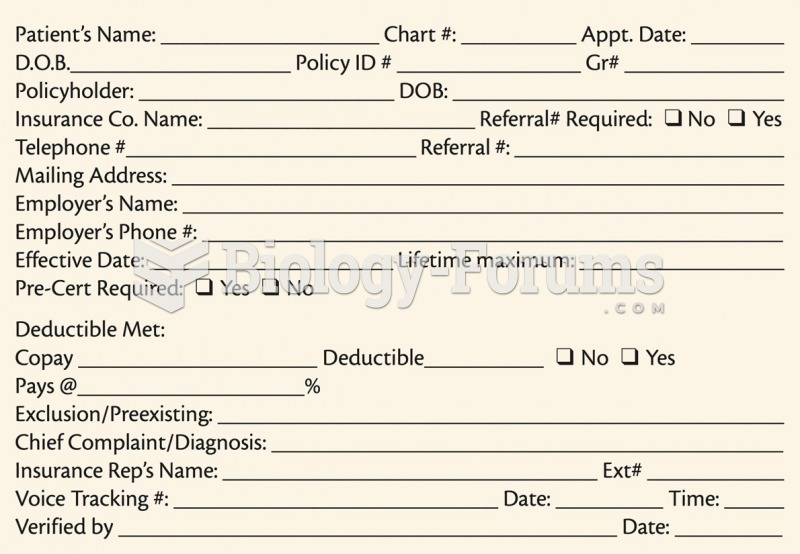|
|
|
The immune system needs 9.5 hours of sleep in total darkness to recharge completely.
Aspirin is the most widely used drug in the world. It has even been recognized as such by the Guinness Book of World Records.
The use of salicylates dates back 2,500 years to Hippocrates’s recommendation of willow bark (from which a salicylate is derived) as an aid to the pains of childbirth. However, overdosage of salicylates can harm body fluids, electrolytes, the CNS, the GI tract, the ears, the lungs, the blood, the liver, and the kidneys and cause coma or death.
Cyanide works by making the human body unable to use oxygen.
The eye muscles are the most active muscles in the whole body. The external muscles that move the eyes are the strongest muscles in the human body for the job they have to do. They are 100 times more powerful than they need to be.







